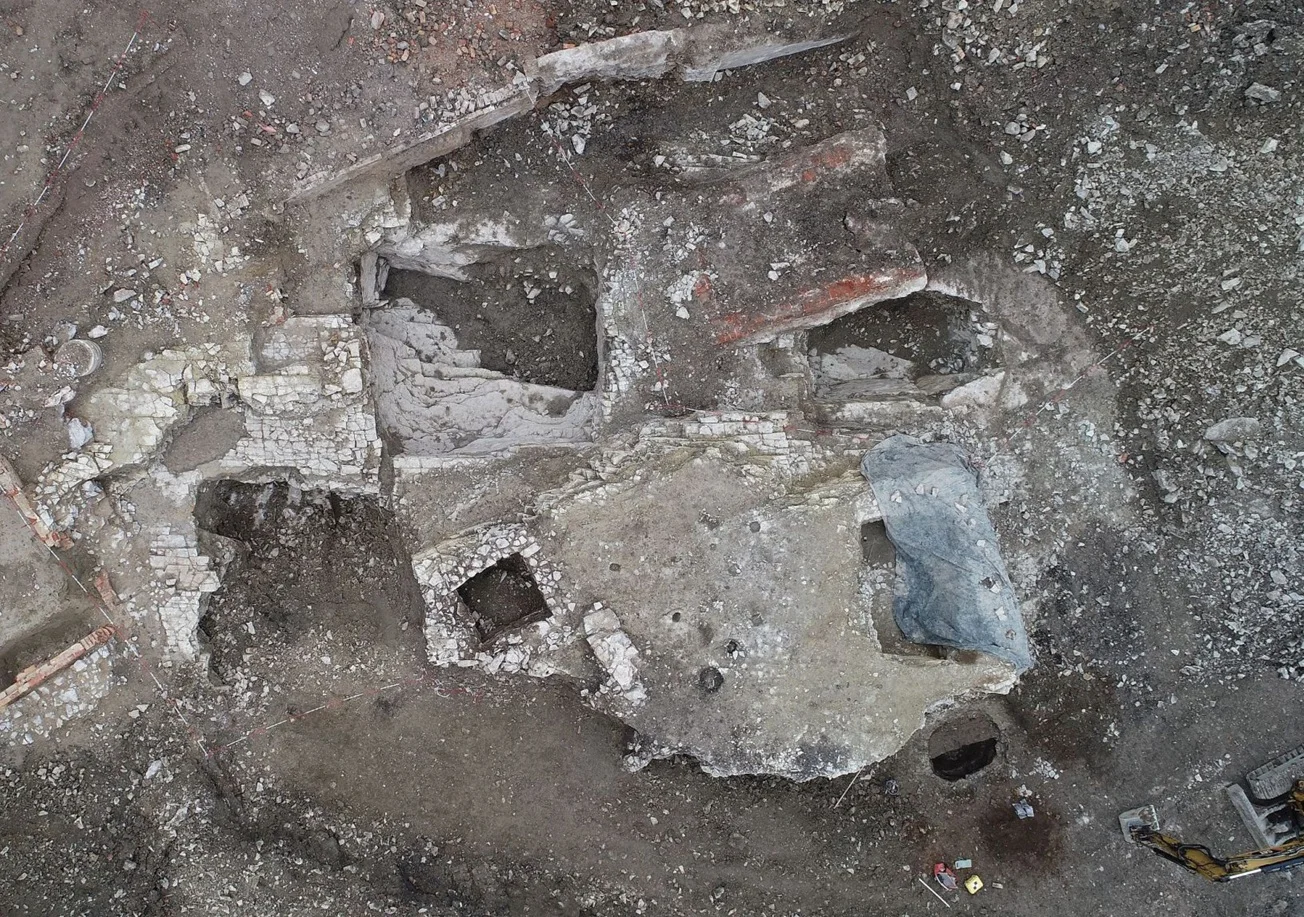Archaeologists from the Westphalia-Lippe Regional Association (LWL) have uncovered several cellars and a quarry beneath the historic centre of Paderborn, a city in eastern North Rhine-Westphalia, Germany.
Since November 2024, archaeologists have been investigating an area where the new Paderborn city administration building will be constructed.
Excavations uncovered a quarry that likely supplied the building materials for the city’s churches and palaces from the 11th century. By the late Middle Ages, the quarry was also widely used for townhouses and infrastructure projects.
The extent of the quarry is yet to be determined, which borders the exterior wall of the Abdinghof monastery, a former Benedictine abbey founded in the 11th century.
Archaeologists also found several basement rooms and cellars carved into the rock. The solid ground provided a stable foundation for the buildings that once stood above, built using stone blocks extracted directly from the quarry site.
“Most of the findings are embedded in the rock,” reports excavation director Dr. Heike Tausendfreund. “We were able to discover several rectangular rooms that can be interpreted as cellars.”
According to a press statement by LWL, the discovery provides new insights into the dense development that gradually arose over the quarry. Experts hope that the backfill will provide important clues for dating the chronology of the site and the type of buildings that were constructed over the centuries.
“The depth of the quarry has not yet been reached, but the filling layers that have been removed so far reach a depth of up to five metres in some places. The situation is comparable to the excavation in Kötterhagen, where the quarry reached a depth of eight metres,” says LWL city archaeologist Dr. Sveva Gai.
Header Image Credit : LWL
Sources : Westphalia-Lippe Regional Association





